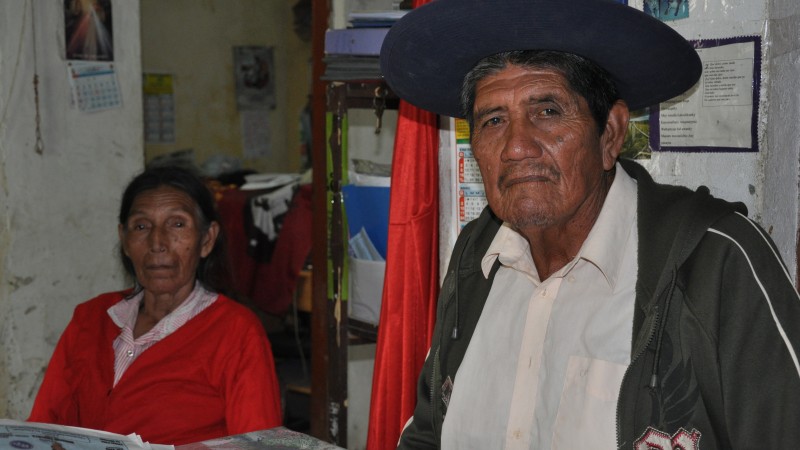
Pilagá Indigenous from Formosa Province in Argentina – Image: Laura Schneider
Following the case of Reina Maraz, a Bolivian Quechua who was detained in Argentina for three years without knowing why, the Court of Buenos Aires province has approved the Registry of Translators for Indigenous Languages.
According to research from the Instituto Nacional de Asuntos Indígenas (National Institute of Indigenous Affairs), during 2004-2005 it recognized the existence of 38 native people communities based on a Complementary Poll of Indigenous Communities from Argentina:
Los pueblos con mayor población a nivel nacional en orden descendente son: el pueblo Mapuche con 113.680, el pueblo Kolla con 70.505 y el pueblo Toba con 69.452 habitantes. En cuanto a los de menor población, se encuentran los pueblos Quechua con 561, los Chulupí con 553, los Sanavirón con 528, los Tapiete con 484 y por último, el pueblo Maimará con 178 habitantes.
Similar registers already exist in Peru, with its Registry of Interpreters of Indigenous and Native Languages, and Bolivia, whose General Law of Linguistic Rights and Policies outlines its main objectives as:
1. Reconocer, proteger, promover, difundir, desarrollar y regular los derechos lingüísticos individuales y colectivos de los habitantes del Estado Plurinacional de Bolivia.
2. Generar políticas públicas y obligaciones institucionales para su implementación, en el marco de la Constitución Política del Estado, convenios internacionales y disposiciones legales en vigencia.
3. Recuperar, vitalizar, revitalizar y desarrollar los idiomas oficiales en riesgo de extinción, estableciendo acciones para su uso en todas las instancias del Estado Plurinacional de Bolivia.







2 comments